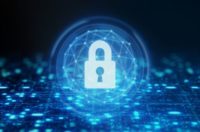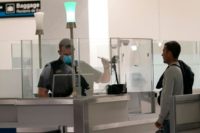here’s no shortage of made-up national holidays. Among the fabricated celebrations: Houseplant Appreciation Day, Irish Coffee Day and Bubble Wrap Day. However, there is one such holiday actually worth observing: Data Privacy Day, which happens to be today. It’s a good reminder to check up on the safety of your personal data. The holiday began in the US and Canada back in 2008. It’s an extension of a European holiday marking 1981’s Convention 108, the first legally binding international treaty on protecting privacy and data. Read full story here: Today…
Read MoreTag: Privacy
The IRS Will Soon Make You Use Facial Recognition To Access Your Taxes Online | The Verge
he Internal Revenue Service will require people who access and pay their taxes online to enroll in a third-party facial recognition company starting this summer (h/t Krebs on Security). Even those who have already registered on IRS.gov with a username and password will have to provide a government ID, a copy of a utility bill, and a selfie to ID.me, the Virginia-based identity verification company. You’ll take a video selfie with whatever webcam or mobile device you’re using to sign up, which seems likely to cause problems for people with…
Read MoreApple Says It Will Refuse Gov’t Demands To Expand Photo-scanning Beyond CSAM | Arstechnica
Apple today said it will refuse any government demands to expand its new photo-scanning technology beyond the current plan of using it only to detect CSAM (child sexual abuse material). Apple has faced days of criticism from security experts, privacy advocates, and privacy-minded users over the plan it announced Thursday, in which iPhones and other Apple devices will scan photos before they are uploaded to iCloud. Many critics pointed out that once the technology is on consumer devices, it won’t be difficult for Apple to expand it beyond the detection…
Read MoreIs It OK To Ask About Someone’s COVID-19 Vaccine Status? Experts Weigh In | Global News
Nicole Hunt thought she was just making small talk with the next person in line when she asked whether he’d been vaccinated. But she soon found she’d run afoul of the shifting social mores surrounding this prickly question. Hunt said she and the stranger were waiting for ice cream when they started commiserating over how ready they were to be done with COVID-19 restrictions. Read full story here: Is It OK To Ask About Someone’s COVID-19 Vaccine Status? Experts Weigh In | Global News
Read MoreVaccine Passports Ignite Debate Over Privacy vs. Public Health | CBC News
As a steadily rising number of fully vaccinated Canadians emerge from hiding to test the gradual return to pre-pandemic normalcy, a conundrum looms: what to do about those who, for whatever reason, haven’t had a shot? Striking the proper balance between public health and personal freedom, and figuring out whether one must be relinquished to protect the other, will become increasingly key as the country reopens. Read full story here: Vaccine Passports Ignite Debate Over Privacy vs. Public Health | CBC News
Read MoreFederal Agencies Use Facial Recognition From Private Companies, But Almost Nobody Is Keeping Track | The Verge
A new report from the Government Accountability Office (GAO) has revealed near-total lack of accountability from federal agencies using facial recognition built by private companies, like Clearview AI. Of the 14 federal agencies that said they used privately built facial recognition for criminal investigations, only Immigration and Customs Enforcement was in the process of implementing a list of approved facial recognition vendors and a log sheet for the technology’s use. Read full story here: Federal Agencies Use Facial Recognition From Private Companies, But Almost Nobody Is Keeping Track | The…
Read MoreHow Law Enforcement Gets Around Your Smartphone’s Encryption | Ars Technica
Lawmakers and law enforcement agencies around the world, including in the United States, have increasingly called for backdoors in the encryption schemes that protect your data, arguing that national security is at stake. But new research indicates governments already have methods and tools that, for better or worse, let them access locked smartphones thanks to weaknesses in the security schemes of Android and iOS. Read full story here: How Law Enforcement Gets Around Your Smartphone’s Encryption | Ars Technica
Read MoreAre VPNs Legal In Canada? | Tom’s Guide
Virtual private networks, better known as VPNs, are one of the easiest ways for people to protect their data and identity, and keep their online activity hidden from the prying eyes of government agencies, internet service providers (ISPs), and hackers. That’s not all—because VPNs enable users to connect to servers around the world, they can also be used to unblock geo-specific content on streaming providers such as Netflix. So if you’re using a Canada VPN, you should be able to access content from US Netflix. Read full story here: Are…
Read MoreCivil Rights Groups Demand CBP Stops Facial Recognition Expansion At Airports | Engadget
The American Civil Liberties Union, Electronic Frontier Foundation and more than a dozen other civil rights groups have objected to Customs and Border Protection’s plan to expand use of facial recognition at border entry and exit points. The Department of Homeland Security proposed a rule change last month that would authorize CBP to photograph foreign nationals at any point of departure, including airports and seaports. Those captured images can be used to create faceprints. Read full story here: Civil Rights Groups Demand CBP Stops Facial Recognition Expansion At Airports | Engadget
Read MoreCSIS Use Of Geolocation Data Could be Unlawful, Says Watchdog | CBC News
The Canadian Security and Intelligence Service’s use of publicly available geolocation data without a warrant may have broken the law, according to the country’s intelligence watchdog. The finding was included in the first annual report from the new National Security and Intelligence Review Agency, tabled in the House of Commons today. Geolocation data is digital information that can be used to determine the physical location of an electronic device. The review found that there’s a risk that CSIS breached Section 8 of the Charter — which protects against unreasonable search…
Read More









